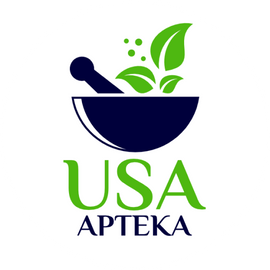
Best Ways to Fight Flu and Cold: tips from Russian Pharmacy USA Apteka
As the calendar turns to the last winter months, we begin to feel the approach of spring. But the cold and flu season isn't over yet. In this article from the Russian online pharmacy in the USA and Canada, USA Apteka, we will explore how to protect yourself and your family from viruses and recover faster if the disease does strike.
Why Do We Get Sick from Viral Diseases?
Winter and spring are periods when the activity of viral infections reaches its peak. Some of the most common winter and spring viruses include influenza viruses, rhinoviruses (which cause the common cold), parainfluenza viruses, adenoviruses, and respiratory syncytial virus (RSV), which can cause acute respiratory illnesses.
Why do viruses become more active in winter and spring? There are several reasons. First, cold weather forces people to spend more time indoors, where viruses are more easily transmitted from person to person. Secondly, the low air humidity characteristic of the heating season can contribute to the longer survival of viruses in the air. Additionally, a lack of sunlight leads to lower levels of vitamin D in the body, which can weaken the immune system and make us more vulnerable to infections.
Research shows that influenza viruses can spread not only through airborne droplets but also through small dust particles. Rhinoviruses can remain active on surfaces for up to 48 hours, highlighting the importance of regularly disinfecting hands and surfaces during cold outbreaks.
How to Protect Yourself and Your Family
Protecting yourself and your family from viral infections in the winter and spring requires an integrated approach.

Here are some important, but not always obvious tips to help strengthen your defense:
1. Using UV Air Purifiers
UV air purifiers can effectively kill viruses and bacteria circulating in the air in your home. This is especially true in winter when indoor ventilation is limited due to the cold. Installing such a device in common areas of the home will help reduce the risk of spreading infections.
2. Using Aromatherapy with Antimicrobial Essential Oils
Research shows that some essential oils, such as tea tree, eucalyptus, and lavender, have antimicrobial properties. Regular use of these oils in a diffuser can help clear the air of viruses and create an additional barrier to infection.
3. Air Humidification
Dry indoor air, especially during the heating season, contributes to the faster spread of viruses. Using humidifiers helps maintain optimal humidity levels, which makes it difficult for viruses to survive and spread, and also promotes better well-being and healthy mucous membranes.
4. Regular Physical Activity in the Fresh Air
Even in the cold season, try to spend time outdoors. Regular walks and winter sports strengthen the immune system and promote better oxygen saturation in the body, which is important for the prevention of viral infections.
5. Using Probiotics
The balance of intestinal microflora plays a key role in maintaining immunity. Regular consumption of probiotics (through fermented foods or supplements) can help strengthen your defenses against viruses.
6. Stress Management
Stress weakens the immune system, making us more vulnerable to infections. Taking breaks during the day, getting regular sleep, enjoying relaxing teas, engaging in hobbies, and in some cases taking natural sedatives will help reduce stress and strengthen your defenses.
Additional tips on how to minimize the risk of encountering viruses and strengthen your immune system:
- Regular washing and disinfection of toys and household items, especially if there are children and animals in the house.
- Use of natural antiseptics, such as solutions with silver, to treat hands and surfaces.
- Meal planning with an emphasis on foods rich in vitamins and minerals, especially vitamins C, D, and zinc.
- Limit contact during periods of outbreaks of infections, especially in public places with large crowds of people.
-
Use of personal protective equipment, such as masks, during periods of increased morbidity.
Nutrition for Colds: What to Eat to Get Better Faster
If you do get sick, make sure to drink enough fluids to avoid dehydration. Warm broths, rich in protein and easily digestible, will help restore strength, and drinks with the addition of ginger, lemon, and honey will speed up the healing process and relieve cold symptoms.

Try to fill your diet with essentials. Your body needs additional resources to fight infection and recover.
What to Eat:
- Vitamin C-Rich Foods: Citrus fruits, kiwi, bell pepper, rose hips. Vitamin C strengthens the immune system and promotes rapid recovery. It is recommended to consume up to 200 mg of vitamin C per day.
- Protein Foods: Chicken, turkey, eggs, legumes. Protein is essential for tissue repair and antibody production. Aim for 1.2-1.5g of protein per kg of body weight per day.
- Liquids: Warm tea, broths, water. Hydration is important to maintain hydration and relieve symptoms such as a sore throat. Drink at least 2 liters of fluid per day.
- Whole Grains and Complex Carbohydrates: Oatmeal, brown rice, whole grain bread. They provide energy and contain important microelements.
- Probiotics: Kefir, yogurt. Supports intestinal health, which is important for immunity.
What to Avoid:
- Sugar and Sweets: May suppress the immune system.
- Fatty and Heavy Foods: Make digestion harder and can slow down recovery.
- Alcohol: Dehydrates and weakens the immune system.
Myths about Diet for Colds:
- "Hot Milk with Honey Treats Cough": While honey may have antimicrobial properties, hot milk may increase phlegm production.
- "Garlic Protects Against Colds": Garlic is useful, but its effectiveness as a means of preventing colds has not been proven.
-
"More Food = Faster Recovery": The quality of food is important, not the quantity. Overeating can put stress on the body.
Cold and Flu Remedies: From Herbs to Modern Medicines
When we are struck by a cold or flu, we often turn to time-tested folk remedies, not forgetting the achievements of modern medicine. It is important to remember that treatment should be comprehensive and aimed not only at eliminating symptoms but also at strengthening the immune system.
Herbs and Folk Recipes
- Tea with honey and lemon - a classic for relieving cold symptoms, has antiseptic and strengthening properties.
- Rose hip decoction – rich in vitamin C, helps strengthen the immune system and cope with viruses.
- Inhalations with essential oils of eucalyptus, mint, or tea tree - help ease breathing with a runny nose and cough.
- Infusion of linden or raspberry – effectively reduces fever and has a diaphoretic effect.
Modern Medicines
- Anti-influenza drugs (for example, Arbidol, Triazaverin, Ingavirin) - used at the onset of the disease to reduce the duration and severity of the flu.
- Immunomodulators (for example, Kagocel, Immuno Flu, Amixin) - stimulate the immune system, help the body cope with viruses.
- Symptomatic remedies (for example, Bromhexine, Linkas syrup) – cough medicines, antipyretics, remedies to ease breathing with a runny nose.
How to Choose the Right Medication
The choice of medications should be based on symptoms and overall health. It is important to consider possible contraindications and side effects. When choosing cough remedies, you should distinguish between dry and wet coughs, since they require different approaches to treatment. In case of high fever and severe pain, you can use antipyretics and painkillers, but do not abuse them.
When to Seek Medical Care
You should consult a doctor if:
- Symptoms persist for more than 5-7 days or worsen.
- A high temperature appears (above 38.5°C/101.3°F), which does not decrease after taking antipyretics.
- There are signs of a bacterial infection (purulent sore throat, severe ear pain, difficulty breathing).
- The patient has chronic diseases that may be aggravated by a cold or flu.
Remember that timely and correct treatment will help you cope with the disease faster and avoid possible complications. Don't forget about prevention: maintain a healthy lifestyle, avoid hypothermia, and contact with sick people.
Spring is a time of renewal, and our body is no exception. Proper nutrition, an active lifestyle, and the use of time-tested natural remedies will help not only survive the period of viral diseases but also meet the warm days in full health and strength. In the Russian online pharmacy USA Apteka, you can always find everything you need for the prevention and treatment of colds: from immunomodulators and mustard plasters to herbs and remedies for symptomatic treatment. Fast shipping just from $3 in the USA and Canada and free in the USA for orders over $49.
Our online pharmacy is always nearby. Stay healthy and happy!


Ascorbinka (Vitamin C) and Hematogen: Sweet Memories and Health from Childhood





